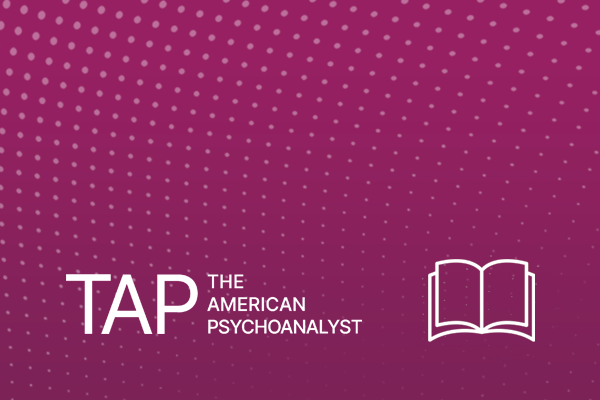Research Training Program Faculty
Eric A. Fertuck, Ph.D. is an Associate Professor of Psychology at the Clinical Psychology Ph.D. Program of the City University of New York (CUNY) Graduate Center and a graduate of the Columbia University Center for Psychoanalytic Training and Research. Dr. Fertuck is a psychopathology researcher who utilizes a social cognitive neuroscience approach to investigate the mechanisms of psychological disturbance and their treatment. He has been funded by the National Institute of Mental Health, the American Foundation for Suicide Prevention, the International Psychoanalytic Association, the American Psychoanalytic Association, and has been the recipient of several awards including the Young Investigator Award of the International Society for the Study of Personality Disorders (ISSPD). He has authored and co-authored more than 60 clinical and scientific articles and book chapters. Dr. Fertuck is a certified Teacher and Supervisor in Transference Focused Psychotherapy (TFP), and has been practicing TFP for the last 25 years. Over last several years Dr. Fertuck supervised/ co-supervised non-research TFP groups in Boston, NYC, Poland, Australia, United Kingdom, Italy, and Mexico at multiple levels of training. He is currently the Associate Editor of Psychoanalytic Psychology (the Journal of Division 39 of the American Psychological Association).
Marianne Leuzinger-Bohleber, D. Phil. served from 2002-2016 as Director of the Sigmund Freud Institute in Frankfurt, Germany. Since 2016, she has been a senior scientist at the University Medical Center in Mainz and, together with Bradley Peterson is leading an international follow-up study to the LAC Depression Study: Multi-Level Outcome Study of Psychoanalyses of Chronically Depressed Patients with Early Trauma (MODE). She received the 2016 Mary Sigourney Award, the 2017 Haskell Norman Prize for Excellence in Psychoanalysis from the San Francisco Center for Psychoanalysis, the Robert S. Wallerstein Fellowship (2022-2027), and the 2023 Outstanding Scientific Achievement Award from the IPA International Psychoanalytical Association. She has been a main organizer and faculty member of the Research Training Program (RTP) of the IPA for many years, as well as serving as a main organizer of the Joseph Sandler Research Conference. Dr. Leuzinger-Bohleber served as Vice Chair of the Research Board of the International Psychoanalytical Association, where she chaired the Research Subcommittee for Conceptual Research from 2001-2009. She is Visiting Professor at the University College London and member of “Action Group” of the “Society for Neuropsychoanalysis”. Her areas of research include:
- Clinical, Conceptual and Empirical Research in Psychoanalysis
- Outcome Research in Psychoanalysis
- Developmental Research (Foci: Early Childhood and Adolescence)
- Psychoanalysis and Neurosciences
- Empirical studies on Depression and ADHD
- Psychoanalysis and Bioethics
- Early Prevention
- Psychoanalytically based work with traumatized refugees
John C. Markowitz, M.D., a Professor of Clinical Psychiatry at Columbia and Research Psychiatrist at New York State Psychiatric Institute, has spent his career involved in psychotherapeutic clinical trials. He trained in psychodynamic psychotherapy during residency at the Payne Whitney Clinic and had four years of personal psychoanalysis. Supported by an NIMH Faculty Scholar Award, he trained in psychotherapy outcome research while learning interpersonal psychotherapy (IPT) from the late Gerald L. Klerman, M.D. and cognitive behavioral therapy (CBT) at the Beck Institute in Philadelphia. With funding from NIMH and other sources, he has since conducted comparative research trials comparing IPT, CBT, and other psychotherapies for patients with diagnoses of mood disorders, anxiety disorders, borderline personality disorder, and PTSD. He was also an (adherent) psychodynamic psychotherapist in a Panic-Focused Psychodynamic Psychotherapy trial led by Barbara Milrod, M.D.
Barbara Milrod, M.D. I am an unusual academic in psychiatry, in that I am both a rigorous clinical researcher and a psychoanalyst. Over the past several decades, I have developed and spearheaded a research program focusing on manualizing, efficacy testing, and disseminating efficacious, brief psychodynamic psychotherapies for use in multiple clinical settings, including at three VA hospitals in the New York City area. I developed and wrote the manual for the first operationalized, brief, now demonstrated efficacious form of dynamic therapy for any DSM-IV Axis I anxiety disorder, Panic-Focused Psychodynamic Psychotherapy (PFPP). I served as Principal Investigator throughout efficacy testing of PFPP and consulted on international studies that replicated its efficacy. Supporting these studies were my NIMH K 23 and linked NIMH R01 awards, American Psychoanalytic Association Fund for Psychoanalytic Research awards, and a Distinguished NARSAD award. I also developed PFPP-eXtended Range, a manualized, trans-anxiety modification of PFPP for a range of anxiety disorders, focused on attachment dysregulation, a prominent problem in posttraumatic stress disorder (PTSD). I have been PI on six grants on the development and testing of various psychotherapies including dynamic therapies, two funded by the NIMH. I have served in primary and secondary mentorship roles on post-doctoral grants, doctoral grants and theses, and as K award-level mentor to researchers in the US and Europe. I have trained and supervised over four hundred therapists, supervisors, doctoral, pre-doctoral, postdoctoral, resident, and faculty-level trainees across eight countries.



